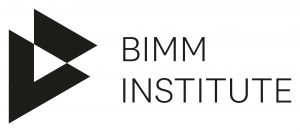Masterclass: Chris Cowey
Students at BIMM Brighton were recently treated to a masterclass and Q&A with legendary television Director and Producer Chris Cowey, who over the last 25 years has been the driving force behind hugely successful music series’ such as Top of The Pops, The Tube, The BRIT Awards and Glastonbury Music Festival.
Cowey – who has worked directly with legendary artists such as Prince, Madonna and David Bowie – offered up his advice and expertise to students on session topics such as:
- Understanding your audience
- The connections between the creative industries
- How to create engaging online content
Formative years
Growing up in the sixties in a small mining village south of Sunderland, Chris’ childhood aspirations were to play for the Sunderland football team or join the army. At school, he was involved in rock operas such as ‘Tommy’ and ‘Stardust’: events which served as a pre-cursor to his future career path.
The ‘Stardust’ production was filmed and broadcasted on TV, which is how Chris first started building a relationship with the industry of broadcast media. During his A-levels, he spent most of his time DJing in local nightclubs, with a local TV station producing a piece on the local nightlife featuring an appearance from Chris himself.
The Tube
In 1982, Channel 4 was starting a new music-oriented Friday night TV show called ‘The Tube’. Chris became a presenter on the show and conducted his first TV interview with John Lydon and his band PiL.
In this interview, Chris directed provocative questions towards John Lydon and the band, leading John to spout swear words at Chris and walk off set. The interview has since become very famous.
Chris explained that the interview “looked spontaneous but everyone was playing their role” and it “ironically worked against them and benefited us”. He went on to explain that the show’s producers had instructed him to conduct the interview in this way and that it was “designed to be good television”.
Chris also worked as a producer on ‘The Tube’ and part of his job was to find emerging artists for the show. Chris claims he was the first person to discover the band ‘U2’.
He explained that bands had to play live on ‘The Tube’ and that he tried to make it as much like a live gig, but one that people can enjoy at home.
Cowey said that “bands should ignore cameras and perform to people” and explained how performances can seem cheesy when artists, such as Peter Andre, look into every camera. He said that “performers are at the mercy of their record company” and have to act as they are told to do so.
Live Aid
Paula Yates, who was then married to Bob Geldof, co-presented ‘The Tube’ with Chris. Chris reminisced on how Paula was on the phone to Bob Geldof one day, with him saying how he’d just seen a documentary on TV about the famine in African countries. All of a sudden, Paula passed the phone to Chris and the concept of ‘Band Aid’ was born which led onto the ‘Live Aid’ concert.
He went on to act as the producer for the televised Live Aid concert. Chris illustrated how he played a key role in the concerts filming.
Top of the Pops
Chris went on to produce an American show for Channel 4 called ‘The White Room’. He was then poached by the BBC in 1997 and began working on ‘Top of the Pops’. Throughout the show, Chris worked with the biggest artists of the time.
He described an incident with Pharrell Williams in which he was supposed to lip sync on the show and that his record company had sent the wrong audio track. Pharrell shouted “it’s the wrong fucking backing track” at the show’s crew.
When filming a session with Prince, Chris explained how the artist approached him and asked to see the footage they’d filmed. To Chris’s surprise, Prince had a wealth of knowledge in TV production. Speaking with the correct industry terms and phrases, Prince was able to dictate the camera angles he wanted. Chris explained how Prince’s knowledge of the wider industry gave him more control over his image and how he was perceived by the public.
One student, named Georgie McBurnie, asked how artists should deal with interviews that feel ‘set up’. To which Chris responded:
“The best thing to do is be the real you. Don’t fake it, keep it real. Ask interviewers what areas you’ll be questioned on beforehand. The only thing you can arm yourself with is knowledge.”
Host Briggy Smale, Portfolio Careers Manager at BIMM Brighton, also has a wealth of experience with the world of music broadcasting. She urged students at this point to always remember that interviews should work both ways.
“Be sure to have in mind what you want to get out of the interview yourself.”, she said.
Cowey’s key broadcasting industry advice for students was:
- To know as many different facets of the showbiz industry as possible.
- It’s completely essential for artists to have a strong image.
- The audience are the customers, not the artist.
Cowey concluded the session with an anecdote on how he got where he is today.
“I’ve never really had a plan. Success is a combination of luck, not being a dick and rolling your sleeves up. Never be afraid to fail. Always try to get a wider audience. Don’t do anything to limit your audience. Make it good and the audiences will come.”
If you’d like to gain access to insightful masterclasses such as this one, take a look at the following course links and start your journey towards a career in music today.


